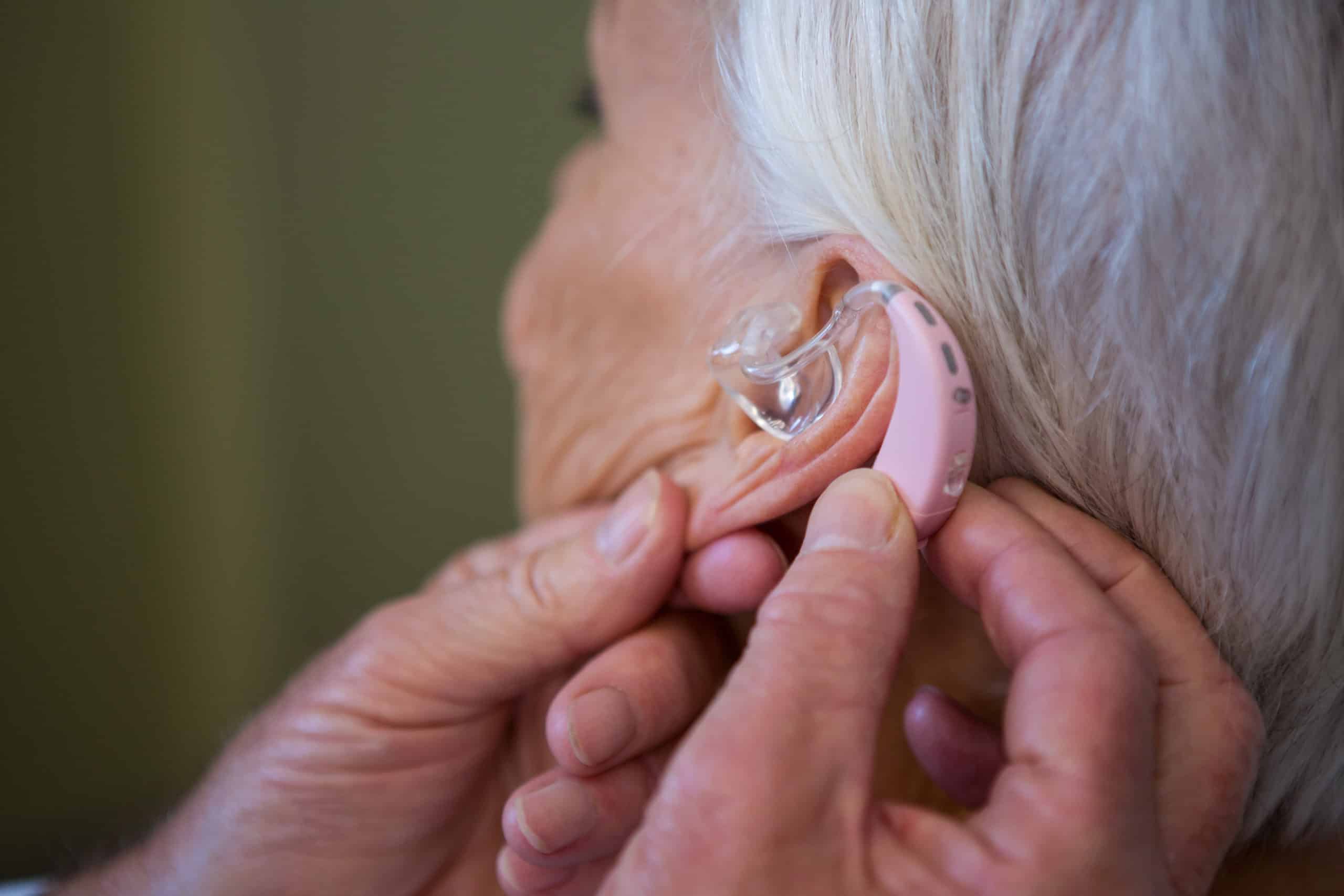Can Hearing Aids Help Prevent Dementia?

Hearing loss is one of the most common conditions associated with aging. About one in three people over the age of 65 have measurable hearing loss. After age 70, the incidence of hearing loss increases to 2 out of 3 people. Hearing loss related to age is called presbycusis and involves the receptive hair cells in the inner ear losing sensitivity which makes distinguishing sounds difficult. Age-related hearing loss is most often a high-frequency type of hearing loss. A common complaint for high-frequency hearing loss is, “I can hear, but I cannot understand”. While hearing loss can be frustrating and isolating, some studies show that hearing loss can be linked to other disorders that develop late in life, including dementia.
Dementia and Hearing Loss
A person with mild hearing loss is twice as likely to experience dementia when compared to someone without hearing loss. Once the hearing loss becomes severe, a person’s risk is five times greater over a span of just ten years. In addition, studies indicate that dementia progresses faster in people with hearing loss. Individuals with hearing loss have been shown to have dementia that progresses up to 50 percent faster than those without hearing loss.
Researchers have found that preventing hearing loss can be a key component to preventing dementia. The theories differ as to how hearing loss and cognitive decline are correlated, or whether both are caused by a third unknown factor. In many cases treating the hearing loss in patients with some degree of mental decline has helped protect their cognitive ability, although it does not stop the physical degradation of brain tissue caused by dementia and Alzheimer’s.
The Correlation Between Hearing Loss and Dementia
A commonly believed theory is that decreased hearing ability causes the brain to overcompensate, diverting resources to help increase the perception of sounds. The extra resources used to aid in conversation and hearing better may then take away from important functions like memory and learning. Another theory is cortical reorganization due to sensory deprivation. This reorganization can occur due to the brain not receiving auditory stimulation.
There is also an environmental aspect of hearing loss that can worsen a person’s mental health through isolation and loneliness. When hearing is limited, social situations are avoided along with other enjoyable activities, such as playing or listening to music.
The question now turns to the efficacy of treatment. Do hearing aids help enough with dementia prevention to be worth the cost? And how do you even treat hearing loss that can’t be helped with hearing aids?
Hearing Aids and Dementia
Hearing aids are a way of boosting auditory input to the brain by amplifying and processing sounds so they are more easily interpreted. Different models and types of hearing aids use various levels of technology based on the hearing needs of a given patient. At Harvard Park Hearing a division of Associates of Otolaryngology, we perform comprehensive hearing exams to identify the cause and type of hearing loss before recommending a course of treatment, including hearing aids both outside and inside the ear.
Currently there is no evidence to indicate that hearing aids will help a person with dementia after the condition has already set in. However studies show that treating hearing loss with hearing aids may prevent the brain from repurposing itself or deteriorating over time which can prevent or postpone the onset of dementia.
Schedule a Consultation
Associates of Otolaryngology serves the Colorado population from our three locations in Denver, Lone Tree, and Castle Rock. We have provided top-rate ENT care for over forty years, with a knowledgeable team of audiologists and allergists who tailor each individual treatment to your specific needs and preferences. If you want to know more about how hearing aids can enhance your life and help prevent mental decline, schedule a consultation with our experts today. Fill out our online contact form today and we’ll get back to you as soon as possible.
Associates of Otolaryngology, or, AOO | ENT Specialists of the Rockies has been serving multiple generations of families across the Denver Metro area since 1969. Our group of board-certified surgeons has been providing award-winning treatment and exceeding patients’ expectations with our specialized ENT services for over fifty-five years.
Thanks to our exceptional providers, we are an all-encompassing, comprehensive ENT practice. Our expert team of specialists includes general ENT surgeons, head and neck surgeons, sleep, sinus, and allergy specialists, and facial cosmetic and reconstructive surgeons. In addition, our team of providers is supported by doctoral-level audiologists, physician assistants, and nurse practitioners.





